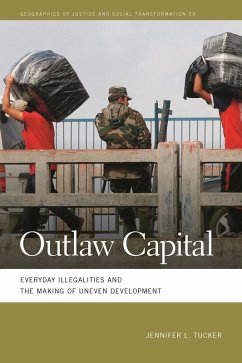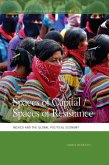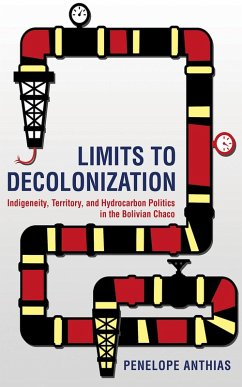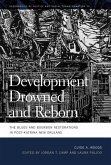With an ethnography of the largest contraband economy in the Americas running through Ciudad del Este, Paraguay, Outlaw Capital shows how transgressive economies and gray spaces are central to globalized capitalism.
A key site on the China-Paraguay-Brazil trade route, Ciudad del Este moves billions of dollars' worth of consumer goods-everything from cell phones to whiskey-providing cheap transit to Asian manufacturers and invisible subsidies to Brazilian consumers. A vibrant popular economy of Paraguayan street vendors and Brazilian "ant contrabandistas" capture some of the city's profits, contesting the social distribution of wealth through an insurgent urban epistemology of use, need, and care. Yet despite the city's centrality, it is narrated as a backward, marginal, and lawless place.
Outlaw Capital contests these sensationalist stories, showing how uneven development and the Paraguayan state made Ciudad de Este a gray space of profitable transgression. By studying the everyday illegalities of both elite traders and ordinary workers, Jennifer L. Tucker shows how racialized narratives of economic legitimacy across scales-not legal compliance-sort whose activities count as formal and legal and whose are targeted for reform or expulsion. Ultimately, reforms criminalized the popular economy while legalizing, protecting, and "whitening" elite illegalities.
A key site on the China-Paraguay-Brazil trade route, Ciudad del Este moves billions of dollars' worth of consumer goods-everything from cell phones to whiskey-providing cheap transit to Asian manufacturers and invisible subsidies to Brazilian consumers. A vibrant popular economy of Paraguayan street vendors and Brazilian "ant contrabandistas" capture some of the city's profits, contesting the social distribution of wealth through an insurgent urban epistemology of use, need, and care. Yet despite the city's centrality, it is narrated as a backward, marginal, and lawless place.
Outlaw Capital contests these sensationalist stories, showing how uneven development and the Paraguayan state made Ciudad de Este a gray space of profitable transgression. By studying the everyday illegalities of both elite traders and ordinary workers, Jennifer L. Tucker shows how racialized narratives of economic legitimacy across scales-not legal compliance-sort whose activities count as formal and legal and whose are targeted for reform or expulsion. Ultimately, reforms criminalized the popular economy while legalizing, protecting, and "whitening" elite illegalities.
Dieser Download kann aus rechtlichen Gründen nur mit Rechnungsadresse in A, D ausgeliefert werden.









